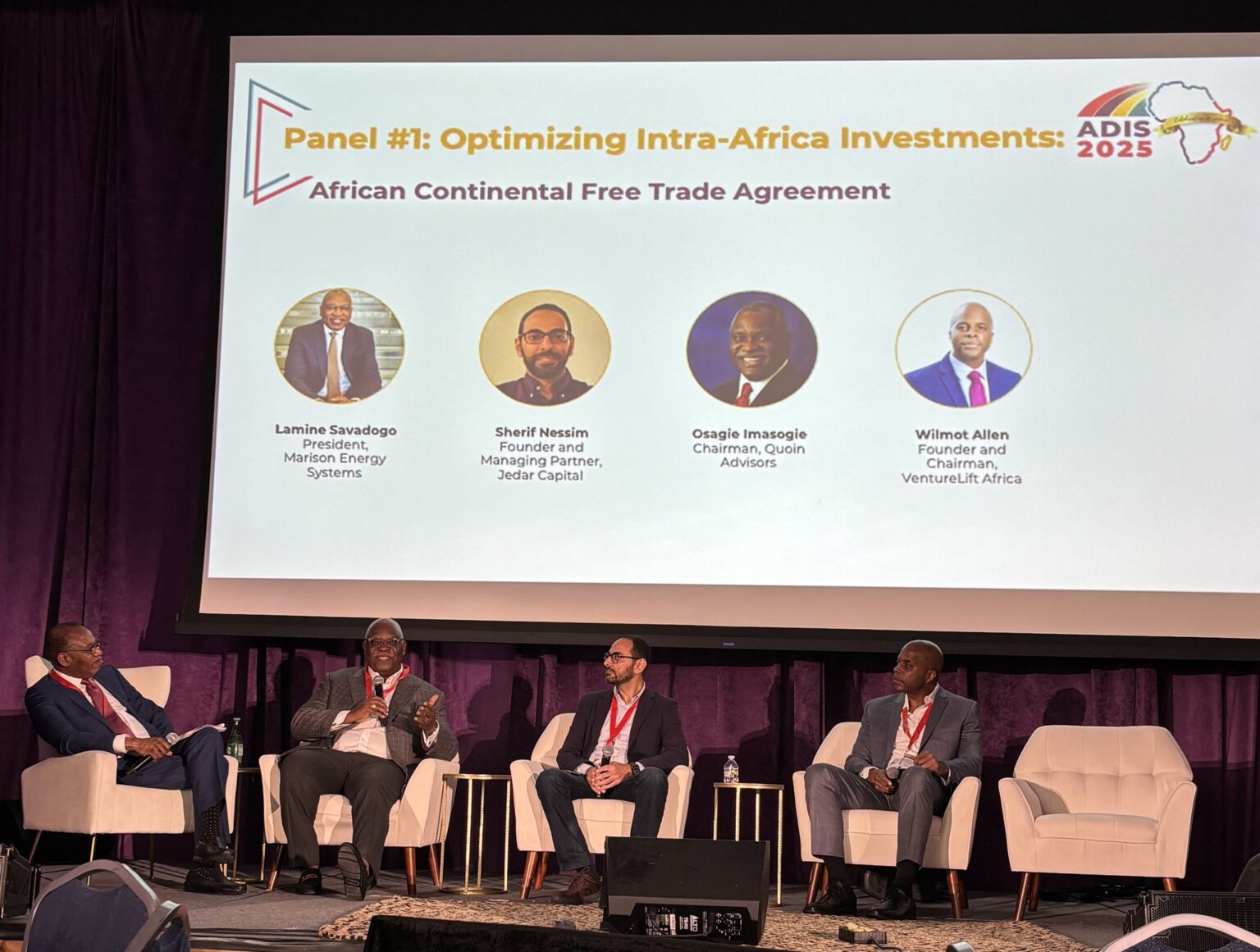As global development models continue to shift, the African Diaspora Network (ADN) has emerged as a leading force in redefining the way Africans abroad engage with their homeland.
Through its advocacy for strategic philanthropy and impact investing, ADN is challenging conventional approaches to giving, steering the narrative away from short-term remittances toward long-term, sustainable investments that transform lives and systems across Africa.
That vision was powerfully reinforced at the recently concluded African Diaspora Investment Symposium 2025 (ADIS25), held from May 28 to 30 at George Washington University in Washington, D.C.
This milestone event, marking a decade since the inaugural symposiumbrought together over 3,400 delegates from more than 100 countries.
Entrepreneurs, funders, policymakers, and thought leaders convened to spotlight the growing influence of the diaspora in shaping Africa’s economic and social future.
Reframing the Diaspora’s Role
Founded in 2010 by Almaz Negash, the African Diaspora Network has long emphasized that the diaspora’s greatest contributions to Africa extend beyond money transfers to relatives.
ADN champions what it calls “transformational investment,” strategic capital, and knowledge mobilization that addresses structural development challenges.
“Our goal is to harness the intellectual, philanthropic, and financial resources of the diaspora to foster sustainable change,” said Negash, who was recently appointed to President Joe Biden’s Advisory Council on African Diaspora Engagement, a testament to ADN’s growing policy relevance.
ADN’s mission centers on creating spaces for Africans from the continent and diaspora, along with global allies, to collaborate through innovation, investment, and entrepreneurship.
Over the years, ADN has convened more than 11,000 individuals through various programs, including its flagship Builders of Africa’s Future (BAF) and Accelerating Black Leadership and Entrepreneurship (ABLE) initiatives.
These programs provide business development support, mentorship, and international exposure for social entrepreneurs and nonprofit leaders whose work targets healthcare, education, agribusiness, and climate change, core pillars of Africa’s development agenda.
Spotlight on ADIS25: From Celebration to Action
The 10th ADIS was not just a celebration of ADN’s past decade, it was a platform for mapping the future of diaspora-led impact.
Under the theme “Beyond Remittances: The Roles of Africans in the Diaspora in Unlocking Transformational Investments,” the symposium featured plenary discussions, fireside chats, and sector-focused panels on health R&D, digital security, entrepreneurship, and philanthropy.
One of the major highlights was the launch of the African Diaspora Innovation Fund, designed to bridge the funding gap for Africa-based innovators and social ventures.
Participants examined how such funding mechanisms can move capital away from donor dependency and toward Africa-owned solutions.
The event also hosted the Innovators’ Table Talk & Collaboration Luncheon, the African Heritage & Cultural Celebration, and workshops on the African Continental Free Trade Area (AfCFTA)—underscoring the intersection of culture, policy, and business in diaspora engagement.
“We must build vehicles for investment that do not just support individual families, but uplift entire communities,” emphasized a keynote speaker at the symposium.
Shifting Philanthropy and Impact Investment Patterns
The African diaspora sends over $50 billion annually in remittances, according to World Bank estimates.
However, these contributions, though vital, often address immediate needs rather than systemic issues.
ADN’s work is part of a broader shift toward strategic philanthropy, where giving is linked to measurable outcomes and long-term change.
This shift is evident in growing trends across the sector.
Between 2010 and 2019, only 14% of large-scale giving from international donors went to African NGOs.
By 2023, that figure had climbed to more than 55%, reflecting an evolving recognition of African-led development solutions and increased confidence in local implementation capacity.
ADN is playing a crucial role in facilitating this transformation by promoting diaspora capital as catalytic, not just charitable.
It is a call for intentional giving—aligned with African priorities and implemented through accountable, community-based models.
In partnership with institutions such as Stanford University, the Conrad Hilton Foundation, and the Mastercard Foundation Scholars Program, ADN has helped seed over 68 cross-sector collaborations.
These partnerships have enabled African entrepreneurs and nonprofits to scale their work beyond local borders.
Challenges and the Path Forward
Still, the organization acknowledges the hurdles ahead.
A lack of trust in formal giving platforms, insufficient transparency, and limited data on diaspora philanthropy continue to pose significant challenges.
During one of the sessions at ADIS25, several African philanthropists and business leaders discussed how corruption and poor accountability in local systems deter more structured diaspora giving.
Dr. Ayo Ajim, co-founder of the Grace Emergency Room, urged greater reforms: “For diaspora engagement to be meaningful, we must support institutions in Africa that are rooted in transparency and deliver impact at scale.”
In response, ADN has outlined a strategic plan for 2024–2028 aimed at formalizing its growing network of diaspora professionals and philanthropists.
It includes building a community platform, establishing donor tiers for individuals and organizations, and exploring the feasibility of opening a satellite office in Africa to enhance on-the-ground support.

Philanthropy Meets Policy
ADN’s influence now extends beyond philanthropy into policy advocacy.
In 2024, ADN was among the key participants in side events at the United Nations General Assembly, including the launch of Women in Philanthropy and Impact Africa (WIPIA)—a gender-focused platform committed to unlocking the potential of female African changemakers.
Such engagements position ADN as a unique bridge between grassroots action and global policymaking.
“Philanthropy must not be a handout,” said one speaker during ADIS25’s closing session. “It must be a hand-up—led by Africans, for Africans, with the diaspora as a strategic partner.”
The Future of African-Led Philanthropy
As ADN looks to the next decade, its focus is clear: deepen its entrepreneurship programs, expand convening power across continents, and push for a more equitable distribution of philanthropic resources.
Its ongoing campaigns and partnerships are not only catalyzing investment but also shaping how Africa is perceived globally, from a continent of need to one of opportunity and innovation.
“Impact doesn’t come from charity alone,” said Negash.
“It comes from collaboration, from belief in Africa’s people, and from the courage to build systems that last.”
For more on the African Diaspora Network’s programs and opportunities to get involved, visit https://africandiasporanetwork.org.




